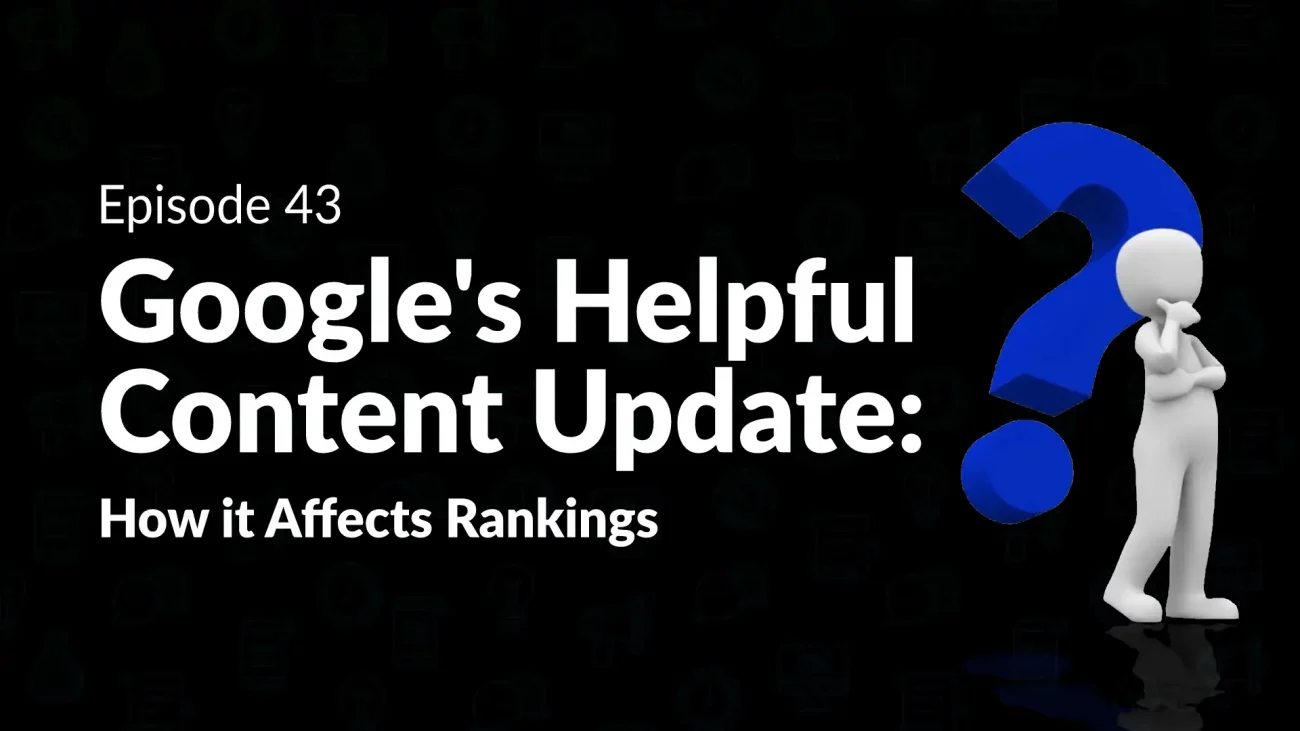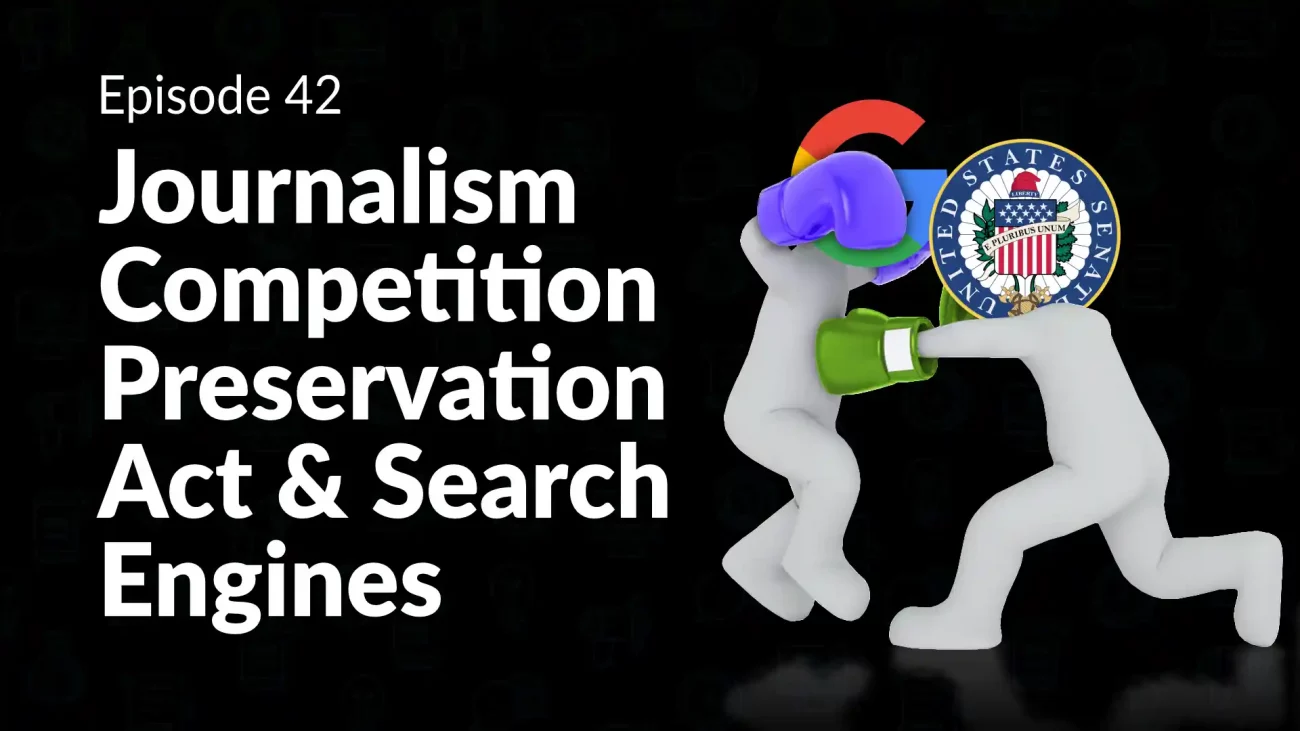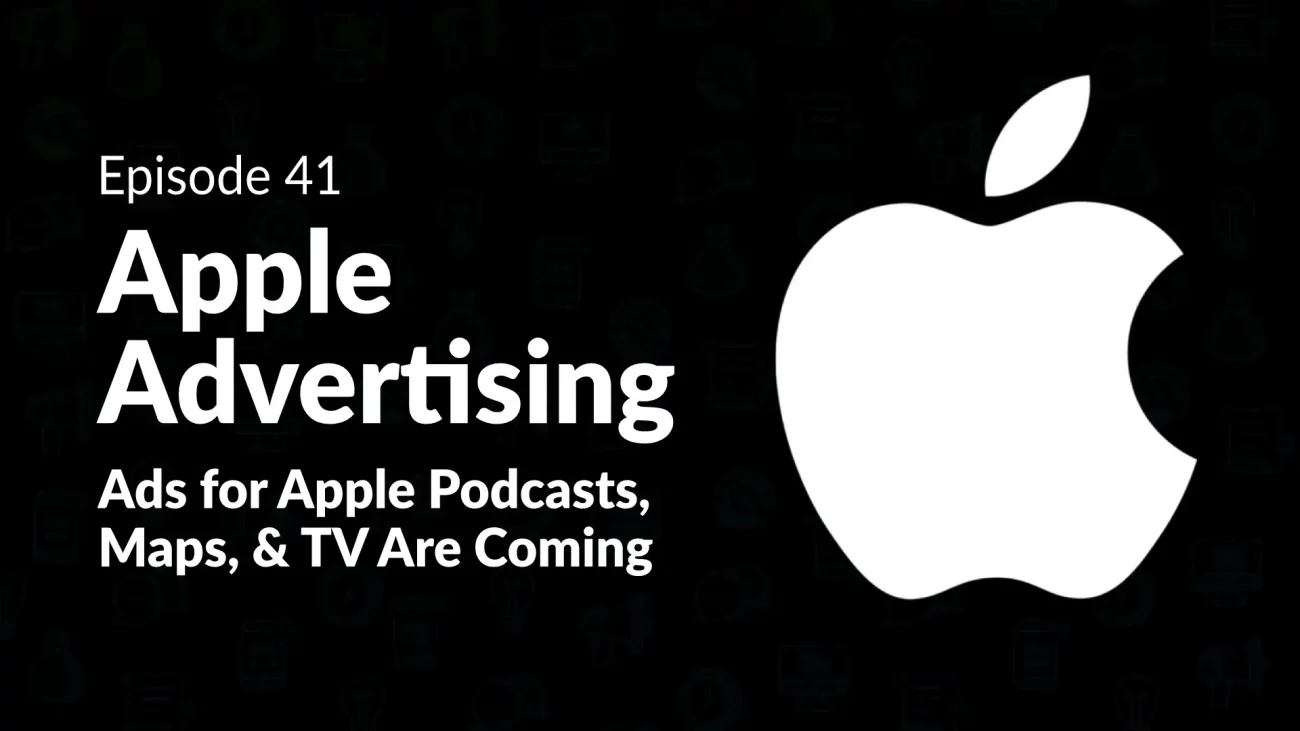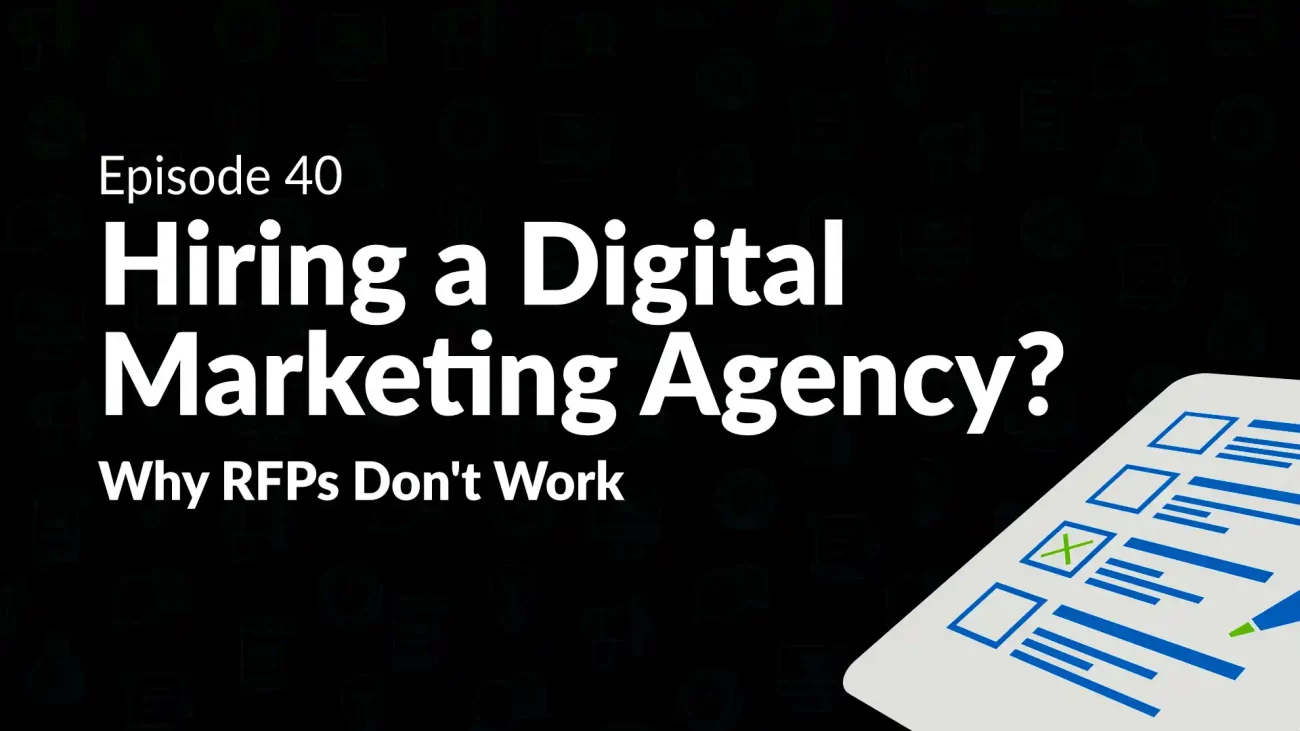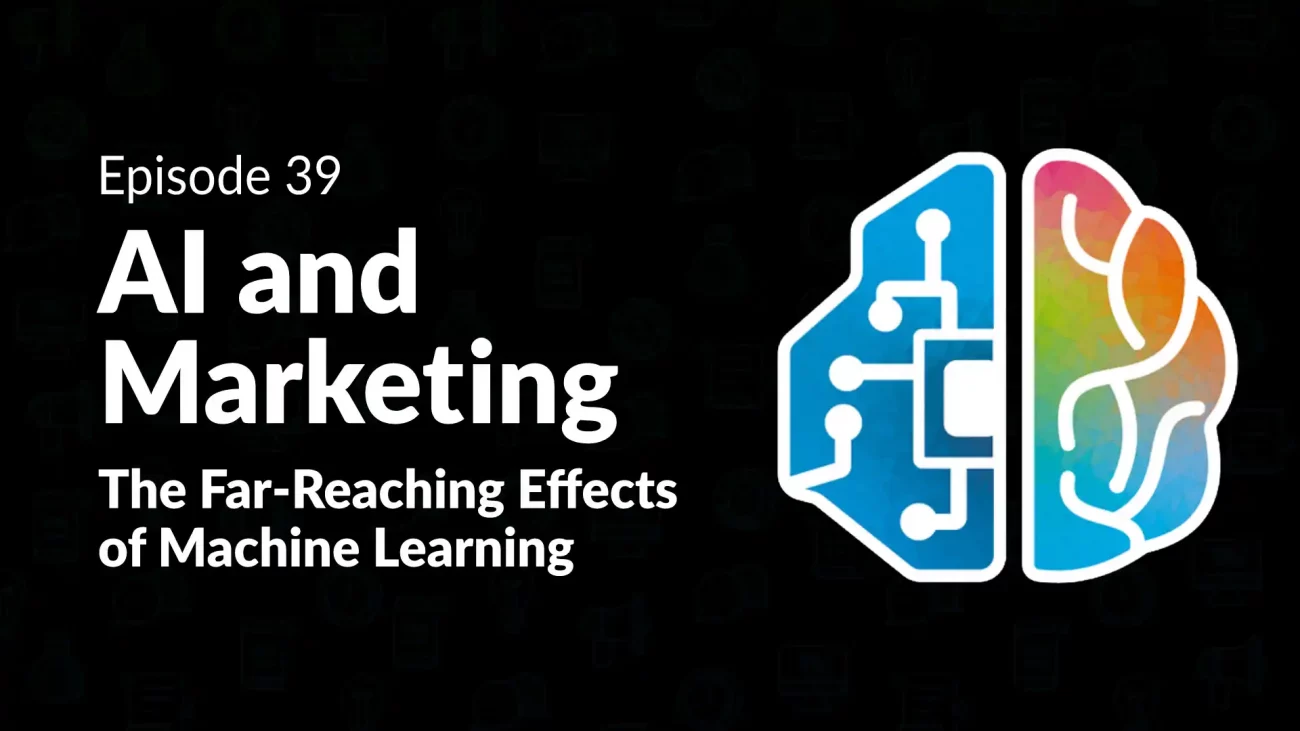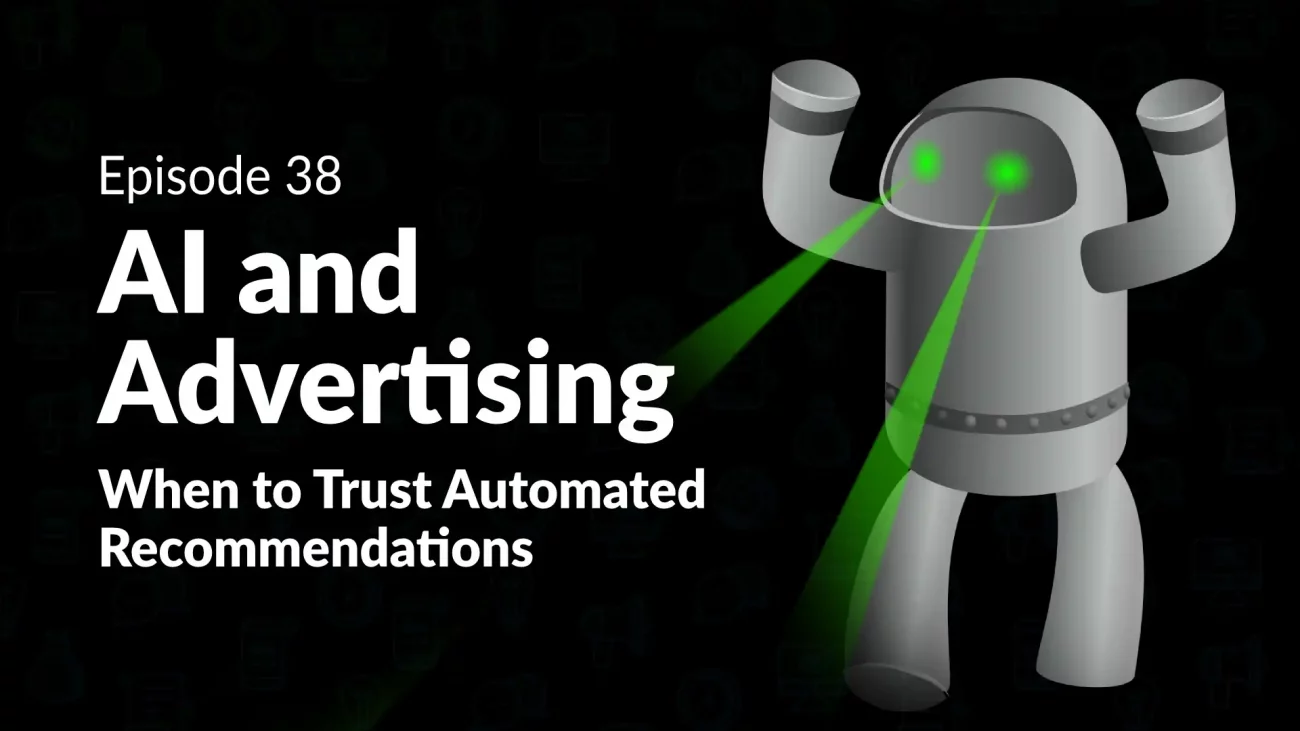Episode 19: Topics API to Replace FLoC: Why Privacy-Centric Tracking is Bad News
A few months ago Google introduced its Federated Learning of Cohorts (FLoC) proposal as its answer to cookieless tracking. This past week, Google announced FLoC would be replaced with a new proposal, Topics API. While it was clear from the beginning replacing cookies would be a challenge, this new proposal brings to light Google’s struggle to solve the problem of collecting user data while maintaining their privacy.
In this week’s Digital Marketing Mondays, Devin and Hans discuss what effects Topics API will have on the marketing industry and how it will impact your ability to target audiences in the future.
Transcription:
Devin:
You’re listening to Digital Marketing Mondays. Each week we bring you new and exciting content from around the marketing industry and help give you, the marketer, insights into what’s happening. We’ll offer our advice and share some takeaways to help you to develop better strategies for your marketing. Ideally, this will also help you improve your ROI as well. So with that, let’s tune into this week’s episode.
Devin:
Here we are, Hans. Another day, another marketing topic to discuss. What do we got today?
Hans:
Yeah, so I was thinking we talked, I don’t know, maybe six or eight weeks ago about this FLoC thing, Federated Learning of Cohorts, I believe it was. And this was sort of the Google’s transition into the cookie-less future. And it was still brand new and shiny, and we didn’t know too much about it yet. Can you give us an update on what’s been going on?
Devin:
Yeah, the update is Google’s canned it. So just last week they actually announced at the time of this recording, it was a previous week. So around the last week of January, they decided that the Federated Learning of Cohorts was not going to be a viable option for them and so it is gone. Now replaced with this new thing called Topics API.
Hans:
Oh, we got a new thing. All right, cool. Cool. What do we know about Topics API? Is that Topics with an X or topics, T-O-P-I-C-S like topics?
Devin:
Like the latter. And it’s an interesting one because it’s basically a non-starter for advertisers. If you’ve been doing any form of Google Ads advertising in recent history, or even really looking at your Google Analytics data thoroughly, you know that there’s something called affinity audiences, which is effectively grouping your website visitors or different people of interests that may have an interest in topics you’re interested in, bucketed into a predefined list of potential topics that are of interest to them.
Devin:
And this Topics API is effectively the same thing. Treated a little bit differently on the backend because it won’t rely on the cookie to be able to do so, but rather the ad tech and particularly the reliance on ad websites to store this information in your particular browser. So it won’t be again, not cookie based, but it’s effectively the same thing. I mean, there’s only 340 topics or so that Google has kind of announced as part of this rollout. So it’s going to be pretty not interesting for advertisers that have been doing any form of affinity audience targeting for any length of time.
Hans:
Yeah. Didn’t they have something in the market for and there were certain number of topics there too? Like real estate or automobiles and things like that. So they’re kind of gross, large, broad shopping categories, if you will, but not the kind of specifics that advertisers really go for, right? Is there any relationship to that?
Devin:
Right. No, you’re absolutely right. It’s really just those broad swaths of topics. There’s a general topic category around politics. There’s a general topic category around football and very high level generalized buckets, right? They’re not very specific. This is a sign that I think we’re running into a lot of… Even Google is struggling with these privacy issues as it relates to not relying on the cookie to track people. I’m sure that they have some very smart engineers that could ultimately have a different way around this in a backdoor approach, but their public promise has been that they’re not going to do that. And what’s clear is as a result of that they’re struggling.
Devin:
This is really not going to be any different again, for the advertisers, not any different than the affinity audiences. So I’m pretty underwhelmed with this announcement overall to be frank. And it’s certainly one that I think had a lot of high expectations and they’ve really dropped the ball here in terms of how it’s getting executed. So yeah, really broad general topics and I mean, you and I both know anybody on the planet is going to be interested in football for, say, the Super Bowl. And that somebody goes to visit an NFL article [crosstalk 00:04:33]. Right. They go to NFLnetwork.com to go see what the game schedule is. Big game coming up soon. Yeah. It’s not going to be applicable because they may not actually really be interested in that topic, but because they happen to visit one time now they’re thrown into that bucket.
Devin:
So the only good news coming out of it is they made it pretty clear at the outset that all of the data, as it relates to pages that people are visiting or the topics that they’ve been put into, unless they’re continuously looking at content within that same topic category, it will get removed from their browser and their history within three weeks. So there seems to be a little bit of a more regular turnover with this in terms of how long somebody might be associated with a particular topic.
Devin:
But that said, I still harken this back to there’s still a problem lingering right now with this cookie-based tracking. And personally, I do not think that this is the best solution. So if you’re a marketer listening out there, do not hang your hat on this. It’s going to change in between now and when they ultimately launch it. Still destined for 2023 at this point. But yeah, honestly, a pretty underwhelming announcement all the way around from Google.
Hans:
Yeah. Well, FLoC didn’t last long as it turns out. So here we are again, and I’m assuming just like cookies, if you switch to a different browser or something like that, it completely breaks down, right?
Devin:
Yeah. Yeah. I think we definitely will continue to see a big war on privacy as it relates to the browsers that are being used, email tracking. Apple is really beating up on Facebook right now. In fact, I saw a funny meme the other day that showed a picture of a schoolyard kid on top of another one, giving him the knuckle sandwich. And they had put a picture of Meta’s logo over the kid’s face on the ground, clearly screaming and crying and then Apple was the big bully with the knuckle sandwich. It was pretty funny.
Hans:
Yeah.
Devin:
Yeah.
Hans:
It’s not farfetched. I actually saw something about an investor meeting and the chief financial guy at Facebook was saying that Apple’s move had probably cost Facebook something on the order of 10 billion dollars in the past year. That’s an interesting metaphor for how to depict that in a cartoon, but yeah, makes sense. Makes sense.
Devin:
Yeah. And it’s only going to get worse from here. So keep on the lookout marketers and continue to be looking for new strategies. And I guess I’ll bring this home by saying that still your best way to be considering doing any form of retargeting or remarketing right now is still list based. Get your systems in place to be tracking your own web visitors, collecting your own web data about who’s visiting your website, how often, what pages, and start using those to build out lists and sync those lists over to ad platforms to be able to then target by. We still firmly hang our hats that that is a foundational element that really any marketer that’s advertising right now should be using that approach.
Hans:
Yeah. Yeah. I agree. Also doing everything you can to make each click or each visitor count. So conversion rate optimization, making sure your offers and everything is smooth, and easy and attractive so that when you do get people to your website, you do make the most of them, because getting targeted people to your website just seems like it’s going to be getting harder for a while.
Devin:
Yes, it absolutely will.
Hans:
Okay. well, thanks. Thanks for that news, Devon, that was a bit of a surprise, but always good to have the latest information here for our listeners. Thanks very much.
Devin:
Absolutely. Thank you.
Devin:
Thank you so much for tuning in. We really appreciate you taking the time out of your busy day to engage with our content. Whether you’re watching on YouTube or subscribed on our podcast apps, we appreciate you taking the time. Make sure to leave a comment down below and let us know any feedback that you have for us. We’re always watching the comments and engaging in any way that we can. So if you find this content useful, also make sure to subscribe or give it a big thumbs up. We appreciate it. Thanks so much.




